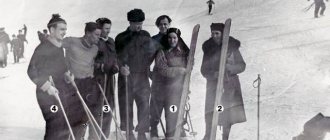Worked from an early age
Christian Gottlob Nefe, who was a composer and organist, was one of the first to see the talent of young Ludwig. Arriving in Bonn in 1782, he became his teacher. The first of Beethoven's works, which are variations related to the theme of Dressler's march, was published thanks to Nefe. Then the young composer was only 12 years old. He already worked at court as an assistant organist.
The family's financial situation deteriorated greatly after the death of his grandfather. And Ludwig was forced to leave school early. But he continued his independent studies, reading many books and studying Latin, French, and Italian. In one of his letters, written in his mature years, Beethoven admitted:
There is no work that is too learned for me; Without pretending in the slightest degree to be learned in the proper sense of the word, I have nevertheless, since childhood, striven to understand the essence of the best and wisest people of each era.
Proud character
Both the composer's judgment and behavior were extremely harsh. While playing one day in a public place, he unexpectedly interrupted the performance. This happened because one of the guests started a conversation with the lady. Beethoven exclaimed angrily:
I won't play with such pigs!
No amount of persuasion or apology forced Ludwig to continue his performance.
There was another case of refusal. Prince Likhnovsky was a fan of Beethoven's music and treated him with great respect. One day, the composer, while visiting the prince, did not want to play music in front of the assembled audience. To get rid of annoying requests, he locked himself in the room. Likhnovsky ordered the servants to break down the door. The composer was indignant and urgently went to Vienna. In the morning he wrote a letter to the nobleman:
Ludwig van Beethoven’s love of freedom and independence is also evidenced by his following statements:
Do good wherever possible, love freedom above all else; to stand up for the truth everywhere, even before the throne.
In order to create something truly beautiful, I am ready to break any rule.
Great composer
In the musical period between classical and romanticism, Beethoven was undoubtedly a key figure. His works are often performed on stages around the world to this day. All genres that existed at that time were subject to him.
Here are Beethoven's statements on music:
Music should strike a fire from a man's heart and bring tears to a woman's eyes.
"Moonlight Sonata" dedicated to Giulietta Guicciardi
Juliet Guicciardi, the young countess, became Ludwig's student in Vienna. The composer often visited the Brunswick family, of whom she was a relative. The musician fell in love with a student and began to think about marriage. Beethoven spent the summer of 1801 on the Brunswick estate in Hungary. There, according to one version, he wrote the “Moonlight Sonata”, dedicating it to Juliet.
But the girl gave preference to Count Gallenberg. She decided that he was a more talented composer than Beethoven. However, critics believed that the Count's melodies were largely borrowed.
In 1821, Juliet asked Ludwig for financial assistance. The composer took this request to heart and obtained 500 florins, sending them to the petitioner. However, he chose to avoid meeting his beloved. But now Juliet began to persistently seek a date, and finally she succeeded.
Recalling these days, the musician wrote:
At the last meeting, Beethoven responded with a sharp refusal to Juliet to her suddenly flared up feelings for him. He later wrote about this quite frankly and mercilessly:
Upon arrival in Vienna, she pestered me in tears, but I despised her. If I wanted to sacrifice my vital forces along with my life, what would be left for the most sublime, for the best?
The musician’s refusal is largely explained by the fact that Juliet was a married woman, and for Beethoven a secret relationship was unacceptable. This is evidenced by his words:
He was an artist, but also a man, a man in the highest sense of the word... One can say about him as about no one else: he did great things, there was nothing bad in him.
Source
short biography
Unfortunately, this event was not the last blow of fate. At the age of 26, the young composer and musician began to lose his hearing. And yet this did not stop him from continuing to make music.
The Great French Bourgeois Revolution of 1789 was also a significant event in the composer’s life. Ludwig van Beethoven warmly embraced the ideals of the revolution. and their collapse after the defeat of Napoleon Bonaparte became a new shock for him. And yet, in the era of classicism, amazing people created. No difficulties in life could break the composer or interrupt his creative process.
During his life, the composer wrote 9 symphonies, 5 piano concertos, 32 piano sonatas, an opera and much more.
Having lived 56 years, Ludwig van Beethoven died on March 26, 1827.







